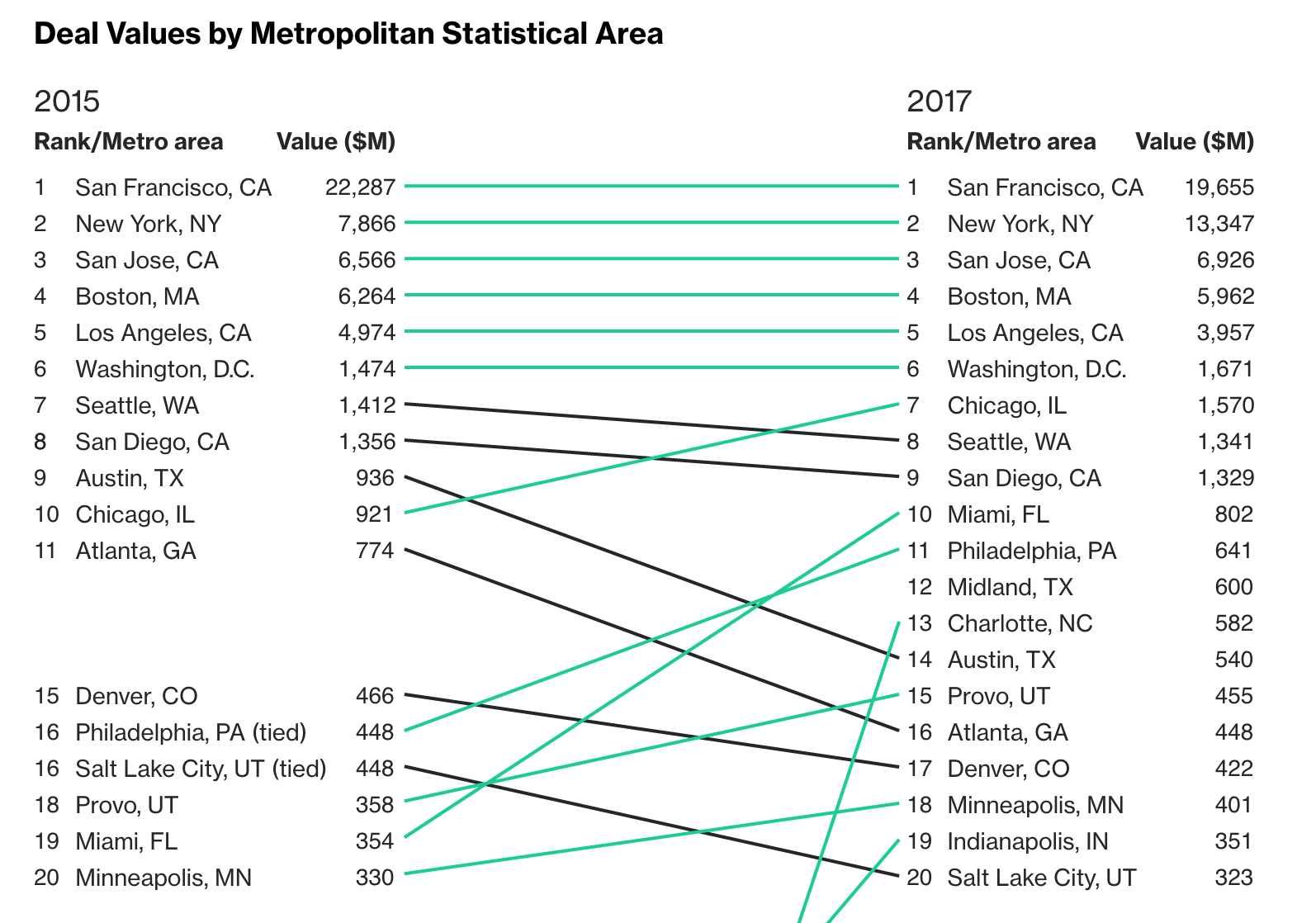Tyler Cowen thinks it could happen. He cites the weather, no shortage of talent from Caltech, UCLA, and USC, and the fact several prominent startups (Snap, SpaceX, Tinder) have already made LA their home.
Yet, LA’s success seems dependent on SF’s failures. Cowen believes Los Angeles can replace Silicon Valley as a tech hub only if San Francisco’s rents continue to rise, the homeless population swells, and its behemoths (Apple, Facebook, Google) stop innovating. In fact, he says one of LA’s main advantages is that it is close to SF, poised to pluck talent from the bay as it slowly implodes.
I’m bullish about LA. Clearly, I’m biased, but I agree with Cowen that it stands to benefit as the tech world looks for another home base. However, I think there are two main obstacles the city needs to overcome if it wants to be a serious contender.
- Intellectual culture
Cowen mentions this. San Francisco has a rich history of free thought and rebellion that has contributed to its innovative culture. LA currently has little of that. Young people have been political and idealistic in the past, but those tendencies have faded. There is still a concern among the UCLA student body, at least, for minority rights and ethnic representation, but they ride the contemporary tide of political correctness and don’t get more than tacit support from the majority of apolitical students. Any free and just society shows equal respect to minorities as other citizens, but this is not the type of activism I see contributing to a creative startup culture. It is necessary for our democracy and an open society, but the economic benefits seem less direct to me.
There’s also less ideology behind startups here as there might be in San Francisco. Hearing again and again how b2b SAAS is going to “change the world” might be nauseating, but the assumption you can make the world a better place through private enterprise infuses the startup culture with a kind of zealoutry you don’t find in LA. Students I’ve talked to here see startups as corporate with more freedom, or talk about how they’re more fascinated with product or software than with “impact.” Students don’t normally start companies directly after college, so they can become more ideological as time progresses, but the general population of undergraduates do not see their relationship with startups in terms beyond general employment.
- Money
I met a guy in one of my philosophy classes who dropped out of University of Michigan last semester and moved to LA to work on a company. He’s doing VR/AR and came here specifically because of the entertainment industry (like Cowen predicted). However, he’s leaving after the summer for SF because that’s where the money is. He feels like he has a much better chance of getting funded if he moves to SF, which is probably true.
 Source:
Bloomberg
Source:
Bloomberg
The chart above tracks the total value of all VC deals done in a single metro area. Less money has been injected into startups in SF since 2015, but it’s still clearly on top. NYC looks like a likely competitor in terms of total deal value, but once we consider nearly half of the $13 billion its companies recieved went to WeWork, it seems not much has changed. LA’s numbers look the most worrying, as startups here recieved nearly $1 billion less than they did in 2015. Snap’s funding history is gated, but they no doubt contributed to a large portion of the 2015 figures, meaning most of the decline is probably attributable to a single major player.
Still, LA has about a fifth of the VC money flowing into it as the SF/San Jose area does. If LA entrepreneurs believe they’re going to have a harder time getting funded here than if they went to SF or NY, that could weigh heavily in their decision making. This slideshow created by a VC at Amplify.LA provides a more optimistic look at the LA funding landscape, but fails to acknowledge the extent we are still dwarfed by San Francisco.
LA’s lucky. People love to hate it (especially in Portland) but it still has the opportunity to capture a thriving industry. If LA solves the two issues mentioned above and SF doesn’t get its act together, prepare for Silicon Beach rather than Silicon Valley.